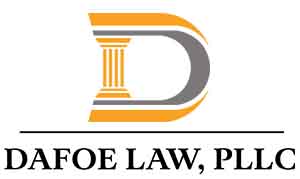
Probate
Probate in Michigan
Probate has become the modern bugaboo. However, it is not as bad as some make it out to be. It has particular advantages and disadvantages that require a thoughtful evaluation to determine if they are right for an individual. A better understanding of what probate entails can allow you to make a more informed decision.
Simply, probate is the court guided process where property is transferred to your surviving spouse and heirs. It is guided by a will. The first step is to open an estate with the clerk of the probate court. The application will include the nomination of a personal representative. A personal representative is the individual that will guide the process and is giving authority to handle the property of the deceased.
The application to open an estate is different depending on whether there is a will or not. If there is a will, the personal representative is named as is the distribution of property. If there is no will, the process is governed by Michigan law. Michigan law provides that the personal representative is the person with priority. First in line is the surviving spouse followed by heirs. Heirs of the same generation have the same priority. A court hearing is often necessary to choose the individual that should be granted the authority to act as the personal representative.
Once a personal representative is named. The individual is given the authority to marshall the assets of the estate. The personal representative must then provide the court with an inventory of the estate. The heirs are given a copy of the inventory.
The personal representative is also required to give notice to creditors. Creditors are allowed four months to come forward, or their claims against the estate may be barred.
Once the debts are paid and the assets marshaled, the personal representative is given the duty to distribute the assets. If there is a will, the assets are divided according to the wishes described in the will. The assets can be divided as they are or liquidated, and cash distributed. Again, notice is provided to the heirs before the distribution is completed.
Once the distribution is made, the estate can be closed. The estate must make arrangements to make sure that the individual’s last tax return is filed as well as tax return for the estate.
The probate process has the advantage of being transparent. In other words, all of the heirs must be notified about what is occurring. The disadvantages are that it is much easier for individuals to object or complain about the process. Additionally, attorney fees, accountant fees, court fees, and other costs are associated with the process. However, even a trust is likely to incur similar costs, excluding the court fees. Finally, the estate will take a minimum of four months (the period to notice creditors). Again, this may be misleading because the new trust code provides for the notice of creditors in the administration of a trust. So, a trust is not going to expedite the process.
The probate process can be complicating and daunting. However, an attorney can lead the personal representative through the process. The process can also seem arduous, but it has the benefit of transparency. The decision to avoid probate may be right for you. However, you should not jump to the conclusion that it is the default. In some cases, a will that requires probate can be beneficial to an individual. A thorough evaluation with an estate planning attorney can be the best way to ensure the individual makes the right decision.


